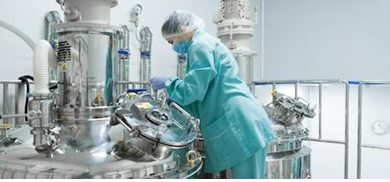Exploring Tools for Streamlining Medical Office Operations

In the rapidly evolving healthcare industry, it has become increasingly essential to streamline medical office operations. The advent of digital technology has provided an abundance of tools designed to optimize the efficiency of various processes within a medical office. By integrating these tools into their workflow, healthcare professionals can increase the quality of patient care, reduce wait times, and create a more productive working environment.
This article explores the top tools that can significantly improve the effectiveness of medical office operations, ranging from appointment scheduling and billing software to electronic health records (EHR) systems and practice management platforms.
- Appointment Scheduling Software
An important aspect of any medical office is the efficient scheduling of appointments. Appointment scheduling software can simplify this process by automating appointment bookings, cancellations, and reminders.
Some popular options include Zocdoc, 10to8, and Appointy. These platforms enable patients to book their appointments online, allowing the front office staff to focus on other tasks. Additionally, automated reminders help reduce no-shows and last-minute cancellations, resulting in better time management for healthcare professionals.
- Electronic Health Records (EHR) Systems
EHR systems have revolutionized the way medical professionals store and manage patient information. These digital platforms replace paper records, making it easier to access, update, and share patient information among healthcare providers. By streamlining the information flow, EHR systems can significantly improve the overall efficiency of a medical office.
Some popular EHR systems include Epic, Cerner, and Allscripts. These platforms offer customizable templates for various medical specialties, making it easier for healthcare professionals to input data and generate reports. Moreover, EHR systems often feature built-in e-prescription capabilities, enabling doctors to send prescriptions directly to pharmacies and reducing the risk of medication errors.
- Medical Billing Software
Billing is a critical aspect of medical office operations, and a streamlined billing process can ensure prompt payments and reduce financial stress. Medical billing software automates the coding and submission of claims to insurance companies, minimizing the risk of errors and speeding up the reimbursement process.
Popular medical billing software options include Kareo, AdvancedMD, and athenaCollector. These platforms help medical offices manage insurance claims, track payments, and generate detailed financial reports. By automating the billing process, healthcare professionals can devote more time to patient care.
- Practice Management Platforms
Practice management platforms or PM software are designed to manage the day-to-day operations of a medical office, including appointment scheduling, billing, reporting, and patient communication. These comprehensive tools can greatly improve efficiency and productivity by centralizing all essential tasks in one place.
These systems offer a variety of features, such as customizable appointment reminders, secure messaging, and performance analytics. By integrating these tools into the daily workflow, healthcare professionals can ensure a smoother and more efficient medical office operation.
- Telemedicine Solutions
Telemedicine has gained significant traction in recent years, providing patients and healthcare professionals with the opportunity to connect remotely. Telemedicine solutions can enhance patient care by offering virtual consultations, remote monitoring, and e-prescriptions. Popular telemedicine platforms include Doxy.me, Amwell, and Teladoc.
These tools enable healthcare professionals to conduct video consultations, monitor patients’ vital signs, and share medical information securely. By incorporating telemedicine into their practice, medical offices can reduce the need for in-person visits, minimize wait times, and expand their patient base.
- Secure Messaging and Patient Portal Solutions
Effective communication between healthcare professionals and patients is crucial for providing high-quality care. Secure messaging platforms and patient portals facilitate this communication by allowing patients to access their medical records, request prescription refills, and communicate with their healthcare providers securely. Some popular secure messaging and patient portal solutions include MyChart, Medfusion, and NextGen Healthcare.
These platforms provide patients with 24/7 access to their health records, lab results, and appointment history, enabling them to take a more active role in managing their health. Furthermore, secure messaging features allow patients to ask questions or address concerns directly with their healthcare providers, improving the overall patient experience.
- Data Analytics and Reporting Tools
The ability to analyze and interpret data is essential for optimizing medical office operations. Data analytics and reporting tools help healthcare professionals make data-driven decisions, identify trends, and monitor performance metrics. Popular data analytics and reporting tools include Tableau, Microsoft Power BI, and Qlik Sense.
These platforms allow healthcare professionals to create interactive visualizations and generate customized reports, enabling them to gain insights into various aspects of their practice, such as patient demographics, appointment trends, and revenue streams. By leveraging data analytics, medical offices can make informed decisions to enhance patient care, optimize resources, and drive growth.
- Inventory Management Systems
Managing medical supplies and equipment inventory is a crucial aspect of running a medical office. Efficient inventory management can help reduce costs, prevent stockouts, and minimize waste. Inventory management systems automate the tracking and ordering of medical supplies, ensuring that healthcare professionals have the necessary resources to provide quality patient care.
Popular inventory management systems include Sortly, Fishbowl Inventory, and eTurns. These platforms help medical offices track inventory levels, set reorder points, and receive alerts when stock is running low. By implementing an inventory management system, healthcare professionals can focus more on patient care, knowing that their supplies and equipment are efficiently managed.
Optimizing Back Office Processes
Streamlining medical office operations is essential for maintaining a high standard of patient care and fostering a productive working environment.
By incorporating tools such as appointment scheduling software, EHR systems, medical billing software, practice management platforms, telemedicine solutions, secure messaging and patient portals, data analytics, and inventory management systems, healthcare professionals can optimize their daily workflows and enhance the overall efficiency of their practice.
As the healthcare industry continues to evolve, the adoption of these digital tools will be critical in ensuring the success and growth of medical offices in the years to come.





